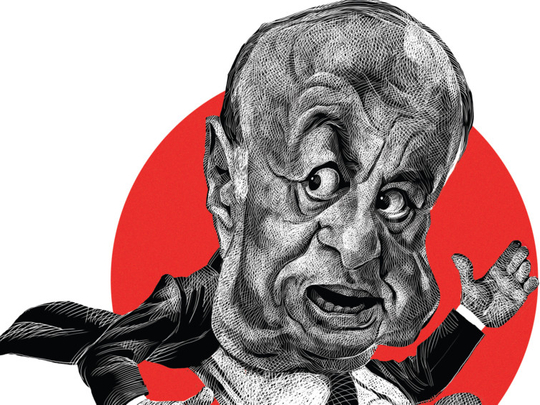
Yemen’s President Abd Rabbo Mansour Hadi has been forced out of his capital and country by Al Houthi rebels allied with the former president Ali Abdullah Saleh. This extraordinary event has led five states from the neighbouring Gulf Cooperation Council to rally behind the embattled president and start military action to restore him to office and ensure an effective government, backed by other allies from the region.
Hadi is a southerner from Abyan, just east of Aden, and he is a product of the south’s colonial and internationalist background. In 1966, he got a military scholarship to study in Britain, where he learned fluent English, and then moved on to study tank warfare in Egypt for six years, followed by four years in the USSR in further military studies.
He then progressed fast through the ranks in the South Yemen army but in 1986 he had to flee to North Yemen with Ali Nasser Mohammad, president of South Yemen, when they lost out to Ali Salim Al Beidh of the Yemeni Socialist Party, who later had to go into exile and from where he is still the leader of the Southern independence movement known as Al Harak.
Once in the north, Hadi worked with Ali Abdullah Saleh, president of North Yemen, and after the two disparate elements of north and south united to form what is called Yemen, Hadi became Saleh’s vice-president.
Hadi has backed the cause of a united Yemen, and belongs to the General People’s Congress, the mainstream political party that has dominated Yemen for decades and was founded by then president Ali Abdullah Saleh in 1982. Much of its ideology is old style Arab nationalism and it stands for Arab unity.
Hadi was part of Saleh’s decades of rule, as the central government became increasingly feeble and regional forces more dominant. The turmoil of the Arab Spring triggered grave unrest and Saleh eventually had to resign in 2012, during which time Hadi was interim president before taking the full presidency after a few months.
The subsequent National Dialogue Conference was attended by a very broad range of Yemeni political parties including the Al Houthis, and wrote a new federal constitution that gave new powers to Yemen’s regions in an important breakthrough that recognised the presence of significant political parties in Yemen’s north and south that needed to be able to administer their regions more effectively.
Disregard for constitution
As President, Hadi played an important part in moving ahead to implement the new constitution, but failed to win agreement on the borders of the new and bigger regions that were to have the new and greater powers. This led the Al Houthis to reject the constitution, and they started their military action, capturing the capital Sana’a in September 2014.
In late January 2015, the Al Houthis ratcheted up their political threat by kidnapping Hadi’s chief of staff, besieging the presidential palace, and placing the president and ministers under house arrest. At the time, the Al Houthi demand was that Hadi and his government should stay in power rather than leave.
In February, Hadi finally called the Al Houthi bluff and resigned, causing the Al Houthis to illegally dissolve parliament, form a new parliamentary body and elect a five-member presidential council, whose appointments were subject to review by the Al Houthis’ Revolutionary Committee and the Al Houthi leader, Abdul Malek Al Houthi.
These moves were rejected by Yemenis from all shades of political opinion, even including the close Al Houthi ally, former president Ali Abdullah Saleh who was reported to say that toying with the Yemeni constitution was a bad idea. Undeterred, the Al Houthis continued to expand their territory, first advancing west to the Red Sea to gain their much prized access to the sea, and then moving south through Taiz until last week they reached very close to Aden.
Hadi was stuck in Sana’a under house arrest during most of these events, but in February he managed to escape and get to Aden where he set up a government for a few weeks, but in the face of continuing Al Houthi advances and fragmented local military support, he fled to Saudi Arabia. If he is to come back to his presidency, he will need both substantial GCC backing and renewed Yemeni support.










